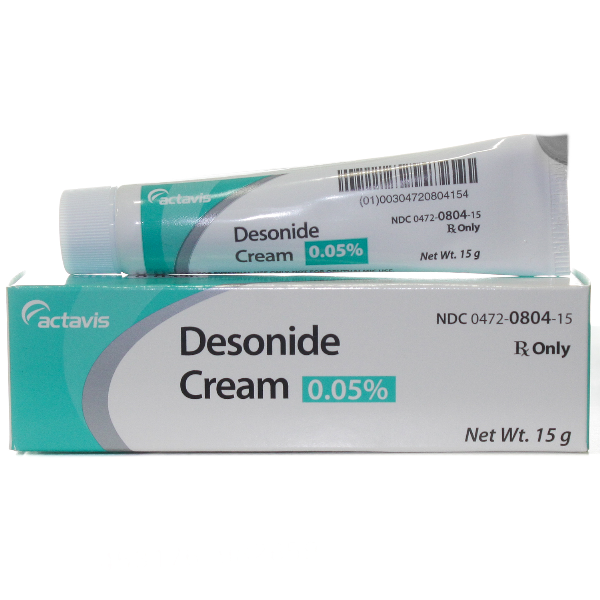The Complete Guide to Desonide: Uses, Side Effects, and FAQs
Understanding Desonide
What is Desonide?
Desonide is a corticosteroid medication that is commonly used in medical treatments for various dermatological conditions. It is available in the form of creams, ointments, and lotions. Desonide works by reducing inflammation and itching, providing relief to patients suffering from conditions such as eczema, psoriasis, and allergic reactions.

How Does Desonide Work?
Desonide contains a synthetic corticosteroid called desonide, which acts by suppressing the immune response and reducing inflammation in the affected area. It works by inhibiting the release of inflammatory substances and preventing the accumulation of immune cells, thereby alleviating symptoms like redness, swelling, and itching.
Conditions Treated with Desonide
Desonide is commonly prescribed for various dermatological conditions. It is particularly effective in managing conditions such as:
Eczema: Desonide helps reduce inflammation and itching associated with eczema, providing relief to patients.
Psoriasis: Desonide can help alleviate the symptoms of psoriasis, including redness, scaling, and irritation.
Allergic Reactions: Desonide is often used to treat allergic reactions on the skin, such as rashes or hives.
By targeting the underlying inflammation, Desonide helps in managing these conditions and improving the overall skin health of patients.
Safe Usage and Precautions
Proper Application of Desonide
When using Desonide, it is important to follow the instructions provided by your healthcare professional. Typically, Desonide cream, ointment, or lotion should be applied thinly and evenly to the affected area of the skin. It is important to avoid applying it to broken or infected skin unless specifically instructed by your doctor. Wash your hands before and after application to prevent the spread of the medication.
Potential Side Effects
While Desonide is generally considered safe, it may cause some side effects. Common side effects may include mild skin irritation, burning, or itching at the application site. These side effects are usually temporary and should subside as your skin adjusts to the medication. However, if you experience severe or persistent side effects such as skin thinning, stretch marks, or changes in skin color, it is important to seek medical attention.
Precautions and Contraindications
Desonide may not be suitable for everyone. It is important to inform your healthcare professional about any existing medical conditions or allergies you may have before using Desonide. Desonide should not be used if you have an active infection or certain skin conditions like acne or rosacea. Special precautions should be taken for pregnant or nursing women, children, and the elderly. It is also important to avoid using Desonide with other medications or substances that may interact negatively. Always consult with your doctor or pharmacist for personalized advice.
Frequently Asked Questions
What are the common side effects of Desonide?
Common side effects of Desonide may include mild skin irritation, burning, or itching at the application site. These side effects are usually temporary and should subside with continued use. However, if you experience severe or persistent side effects, it is important to consult your healthcare professional.
Can Desonide be used for children?
Desonide can be used for children, but it is important to consult with a pediatrician or dermatologist before using the medication on a child. The doctor will determine the appropriate dosage and duration of treatment based on the child’s age, condition, and medical history.
Is Desonide safe during pregnancy?
Desonide should be used during pregnancy only if the potential benefits outweigh the potential risks. It is important to discuss the use of Desonide with your healthcare provider if you are pregnant or planning to become pregnant. They will evaluate your specific situation and guide the safest course of treatment.
How long does it take for Desonide to show results?
The time it takes for Desonide to show results can vary depending on the individual and the condition being treated. Some people may experience improvement within a few days, while others may require several weeks of consistent use. It is important to follow the prescribed treatment plan and consult your doctor if you do not see any improvement or if your symptoms worsen.
Can Desonide be used on the face?
Desonide can be used on the face, but it should be done with caution and under the guidance of a healthcare professional. The skin on the face is more sensitive and prone to side effects, so it is important to use a lower-strength formulation and avoid prolonged use. It is best to consult a dermatologist for personalized advice regarding the use of Desonide on the face.
Is Desonide available over the counter?
No, Desonide is not available over the counter. It is a prescription medication that requires a doctor’s prescription. This is because Desonide is a potent corticosteroid that should be used under medical supervision to ensure safe and appropriate usage.
Can Desonide be used for other conditions not mentioned?
Desonide is primarily used for dermatological conditions such as eczema, psoriasis, and allergic reactions. However, there may be instances where a healthcare professional may prescribe Desonide for off-label usage. It is important to follow your doctor’s instructions and only use Desonide for the specific condition it has been prescribed for.
Conclusion:
Desonide is a corticosteroid medication commonly used in the treatment of various dermatological conditions. It works by reducing inflammation and itching, providing relief to patients.




